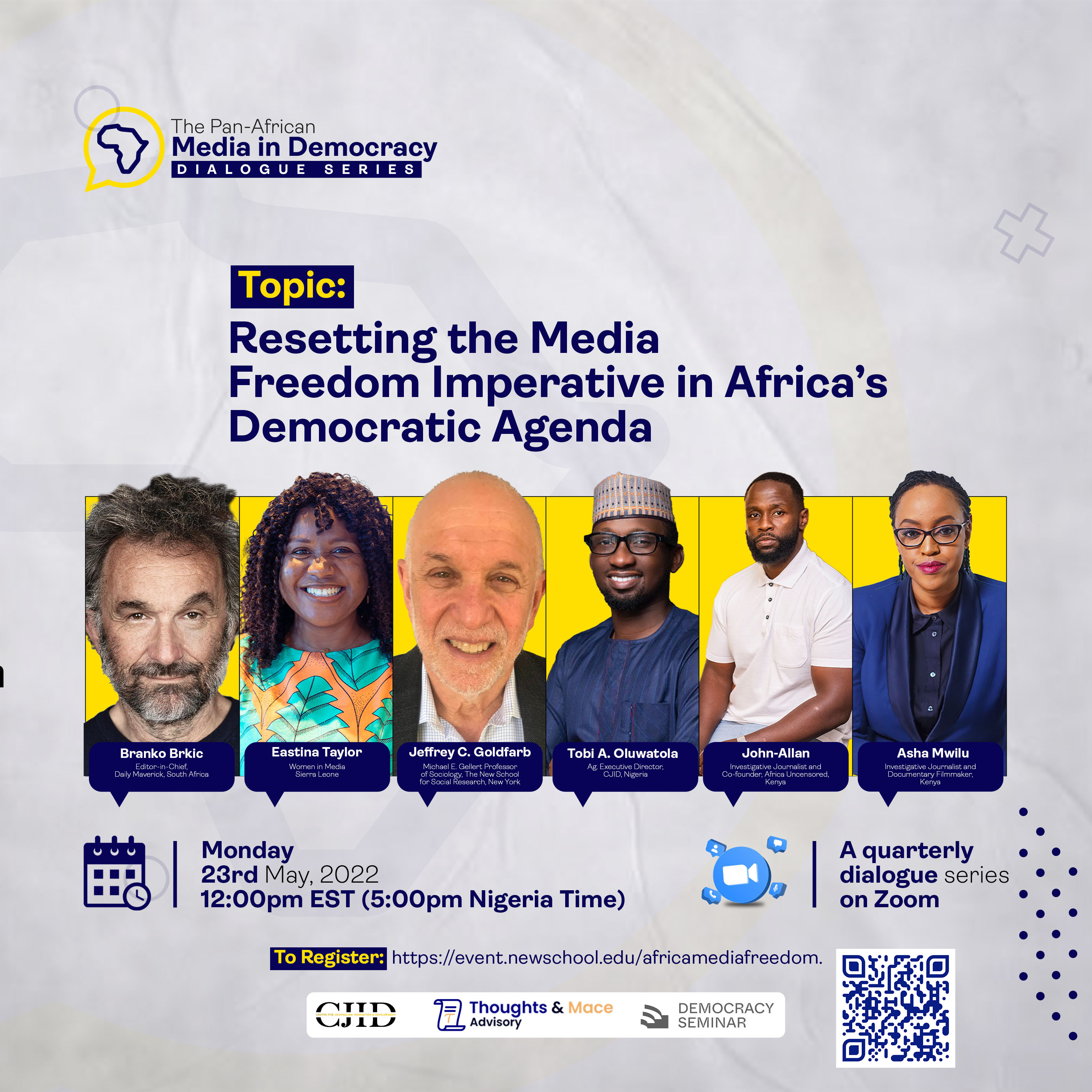This website uses cookies
We inform you that this site uses own, technical and third parties cookies to make sure our web page is user-friendly and to guarantee a high functionality of the webpage. By continuing to browse this website, you declare to accept the use of cookies.

May 23: ONLINE | Resetting the Media Freedom Imperative in Africa’s Democratic Agenda